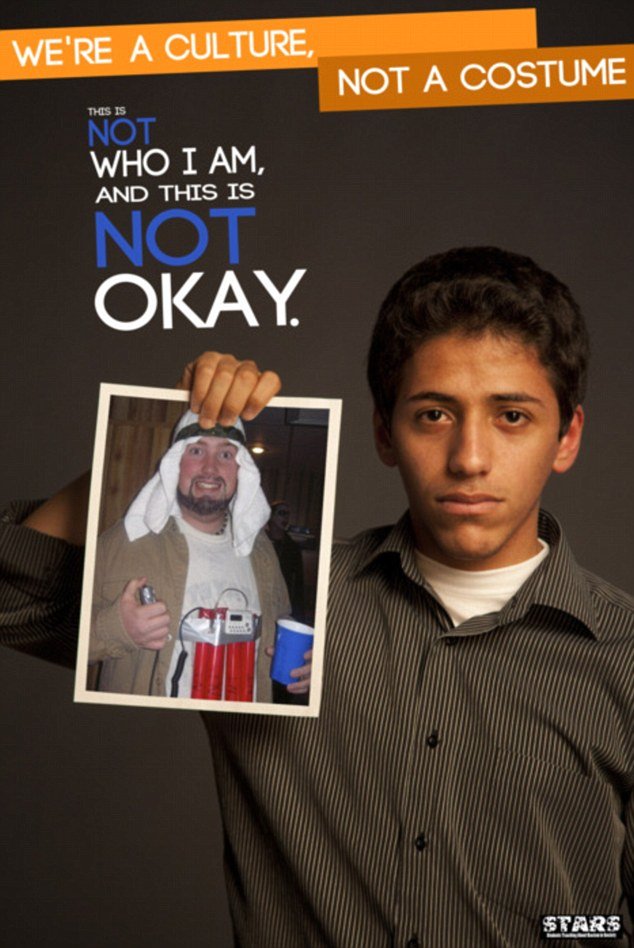
Halloween, the annual holiday observed on October 31, is a time for activities as trick-or-treating, carving jack-o’-lanterns and attending costume parties.
A group of college students from Ohio University are taking a stand against some costumes which, they say, can cause hurt and humiliation to people from minority ethnic groups.
The group from Ohio University, Students Teaching Against Racism in Society has created a poster campaign to highlight the racial stereotyping all too common in Halloween party costumes.

“We’re a culture, not a costume” campaign shows images of people of different ethnic groups holding up images partygoers whose costumes they say lampoon their cultures.
All posters read above each image: “This is not who I am, and this is not okay.”
The campaign has provoked an online row over whether the costumes are actually racist, or whether they are just in good fun.
One blogger who wrote about the posters two days ago had to disable comments on her website after she got 3,000 views and comments from “rude, racist people”.
Eternal Sunshine of the Spotless Mind blog wrote of the campaign:
“These posters act as a public service announcement for colored [sic] communities.
“It’s about respect, human dignity, and the acceptance of other cultures (these posters simply ask people to think before they choose their Halloween costume).
“What these costumes have in common is that they make caricatures out of cultures, and that is simply not okay.”
One poster shows a Native American man holding a picture of two women with paint on their faces and feathers in their hair holding a sign reading: “Me wantum piece [sic]… not war.”
Other poster shows an Asian American woman holding up a picture of a woman dressed as a Japanese geisha girl, with silk kimono and heavy white foundation.
Another poster shows a young Arab-American man holding up an image of a Halloween reveller wearing Arabic dress and a suicide bombers vest.
Comments on the Huffington Post website, where the story has also been reported, were split over whether the costumes could be judged offensive.
Many people could see nothing wrong with dressing according to racial stereotypes.
One person wrote on the site: “People need to get a sense of humour, and quit taking everything so seriously.
“If I can’t dress like a bandito then nobody can dress like a ghost because I don’t have a tan and I find it offensive.”